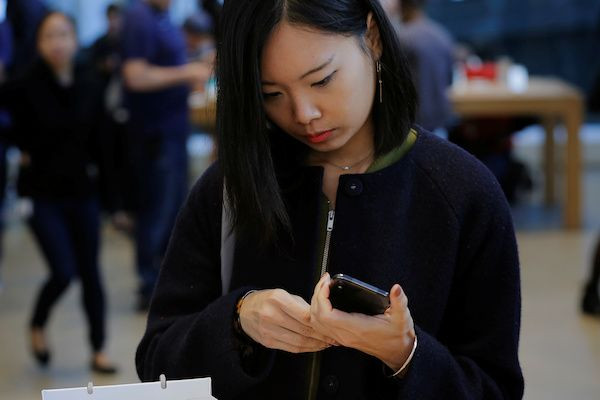Apple iPhone X Demand In China’s Gray Market Lower Than iPhone 7 Plus?

While Apple has said that the demand for iPhone X in the U.S. is “off the charts,” the same can’t be said when talking about the demand for the handset in China. Apparently, gray market dealers are charging much smaller premiums for the 10th anniversary iPhone and this could be indicative of the low demand for the device in the asian country.
On Tuesday, Apple Insider learned that iPhone X is suffering with low markups in Beijing’s gray market. At last week’s launch, resellers were charging about 29 percent for the 256GB model. This is quite low compared to the 163 percent premiums for last year’s jet black iPhone 7 Plus. The markup for the new iOS 11-running handset was also found to be significantly lower at a city electronics market at just 15 percent.
The Apple-centric outlet believes that the premiums for the iPhone X will shrink further in the coming months when Apple’s supply starts to catch up to the demand. This then would make it possible for consumers to just shop at Apple instead of turning to the gray market for their own handsets.
There are two main reasons that could be causing the low demand for iPhone X in China’s gray market at present. First is the expensive price of the 10th anniversary iPhone. Before the markup, the 64GB model is priced at 8,388 yuan or US$1,264, while the 256GB version costs 9,688 yuan or US$1,459. The second reason has to do with the availability of cheaper but quite competitive handsets from local manufacturers like Huawei, Xiaomi and Oppo.
Even with the launch of the iPhone 8 and iPhone 8 Plus in September, Apple’s ranking in the second largest economy remained in fifth place, while Android phone makers enjoy the top spots. With the iPhone X, the chance of jumping to the higher spots is also slim because China’s largest phone makers are intentionally pitting their latest flagships directly against the 10th anniversary iPhone in the final months of this year, as pointed out by Bloomberg.
If Apple does see a growth in its market in China, it is said to be nothing but short-lived. “Apple’s growth this quarter is only temporary,” Canalys analyst Jia Mo said. “The hefty price of iPhone X is going to hurt sales in China, that’s the biggest reason that we’re not too optimistic about its performance in fourth quarter.”
Apart from China, another asian market where Apple could be struggling to sell its new iPhones is South Korea, which happens to be the home country of Apple’s biggest rival, Samsung. When the iPhone 8 was launched in the country last Friday, it was met with a relatively tepid response. Industry watchers are claiming, however, that the sluggish sales of the yearly upgrade has to do with the delayed release of iPhone X, which is rumored to launch in Korea this December.
Another contributing factor why Apple’s new iPhones are not doing well in South Korea is the fact that Samsung launched its flagship killer, the Galaxy Note 8, in September. The competition between Apple and Samsung’s flagships have always been tough. The Note 8 may not be an affordable alternative to Apple’s iPhones, but it manages to capture the attention of many consumers who are looking for top specs and advanced mobile technologies.
© Copyright IBTimes 2025. All rights reserved.




















